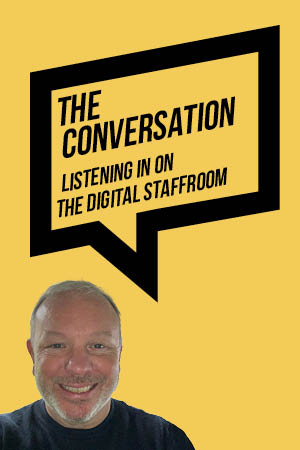Publisher
Crown House Publishing
ISBN 10
1785835866
Published
14 Jan 2022
Since the pandemic started, my makeshift home office comprises a monitor sitting atop the largest book I own, The Oxford Handbook of Happiness. When I first saw About Our Schools, which weighs in at a whopping 641 pages, my first thought was that it might be time to switch my screen’s crutch. Then I started to read it. This book isn’t going anywhere that I can’t immediately reach it.
I should’ve known it would be good. Years ago, I wrote a profile of Brighouse for Schools Week that started with this line: “The longer you talk about a problem in education, the more likely you tend towards the solution ‘Clone Tim Brighouse’.” His track record of school improvement is stellar, and his warmth is legendary.
Waters is also near-mythical in status. A former headteacher who went into teacher training before becoming a curriculum god of the 2000s New Labour era, he is internationally famed. As Peter Wilby once said, he is ubiquitously referred to as “the charismatic Mick Waters”.
Beyond such star power, the front cover boasts 100 names of the best-and-brightest in education, running the gamut from progressive heads (Peter Hyman) to hardline trads (Katharine Birbalsingh), and education secretaries of all hues and eras. Each was interviewed by Waters and Brighouse for the book, and the breadth of thinking really shows.
The culmination is a clear-eyed, comprehensive overview of the knotty, practical realities involved when trying to educate millions of children in little organisations called schools. It is told with the depth of detail that only two people who’ve spent entire lifetimes thinking through these issues could achieve.
A clear-eyed, comprehensive overview of the knotty, practical realities
If I sound surprised, it’s perhaps because I was expecting the book to be more polemic than a sociological and historical account. Having a foreword by Danny Dorling, an academic not known for pulling his punches, added to that expectation. But the book actually reads like a brilliantly detailed education policy textbook rather than a series of opinion columns.
The first section describes the influence of politics on education and gives an overview of how academies came to be as they are now. Parts two and three untangle complex sector problems: teacher training, school improvement, special needs, admissions.
Using extensive quotations from their interviews, the authors weave a picture of the complexity of policy decisions. They give a solid overview of reforms and they mainly succeed in using other people’s voices to temper or challenge their own, though a slight anti-academisation and a definite anti-Gove tone permeate the book.
For me, the impassioned parts caused no problems. I enjoyed alternately nodding along or arguing with them in my head. If you only want to read books you entirely agree with, however, you may need to steel yourself.
If there’s a section of the book that will cause disagreement, though, I would suggest it’s the fourth part, which is full of recommendations for the future. Some solutions are easier to sell. For example, Brighouse’s idea for a virtual ‘Open School’ (a smush of Open University, Bitesize and Oak) feels timely and harmless. Others are more complex and hark back to the ‘personalised learning’ agenda of the 2000s. It always sounds utopian, especially when narrated by the charismatic Mick Waters, and the truth is that it tends to exhaust teachers, leaders and (especially) timetablers.
Nonetheless, the book would be worse without the recommendations. At least Brighouse and Waters have the guts to lay out several detailed policies. At present, no political party is achieving that.
Ultimately, this is a meaty, beautifully written book. Clear, detailed and likely enough to be regularly referenced that it shall escape the fate of becoming a monitor stand. I’ll keep it close to hand in case I ever need to hit a burglar over the head. They would likely come away all the smarter for it too!








Your thoughts